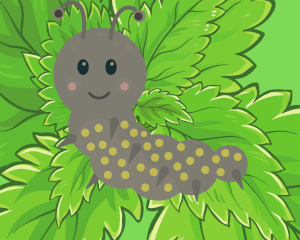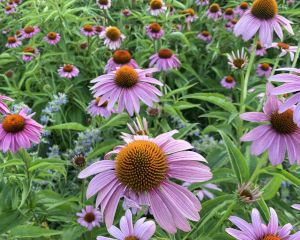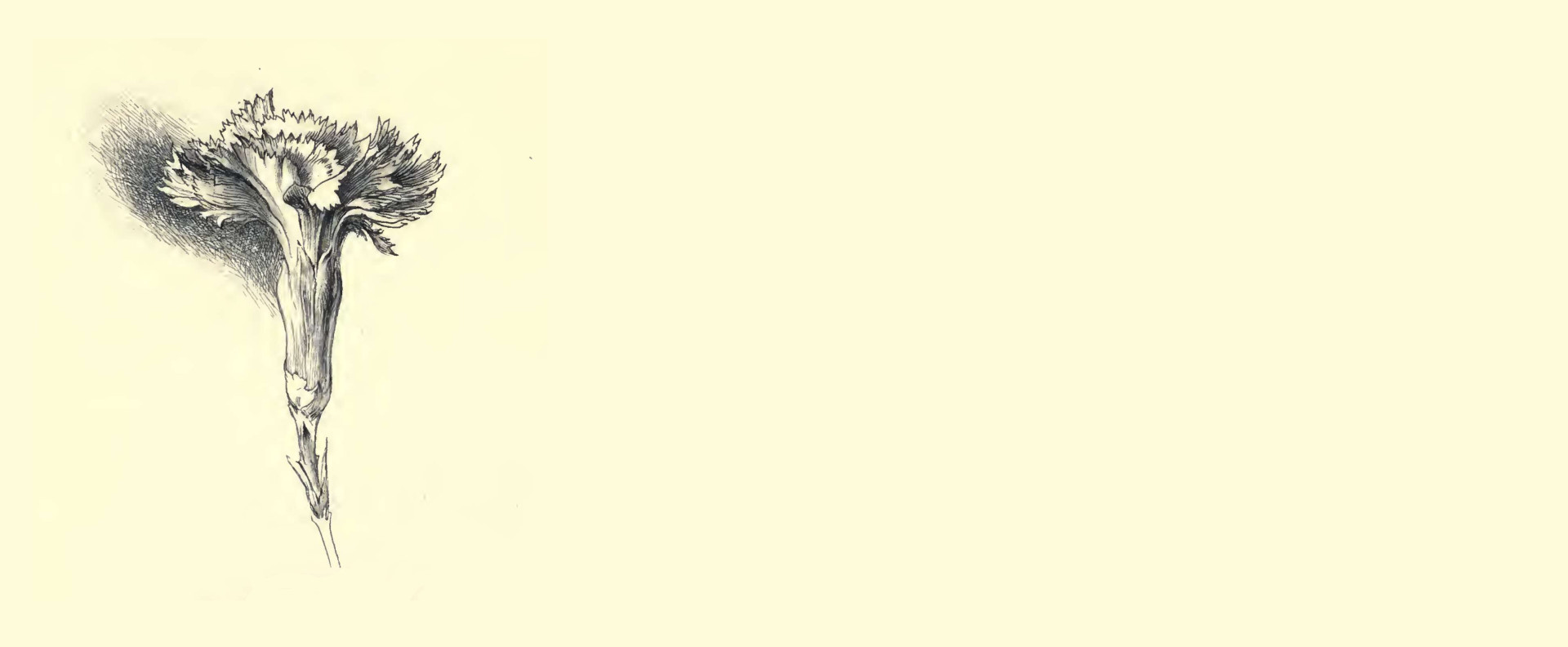

John Ruskin
“If you can paint one leaf, you can paint the world.”
August: Depicting Flowering Plants in Color
By Gayil Nalls, Liz Macklin, and Karen Bauer
Sign up for our monthly newsletter!
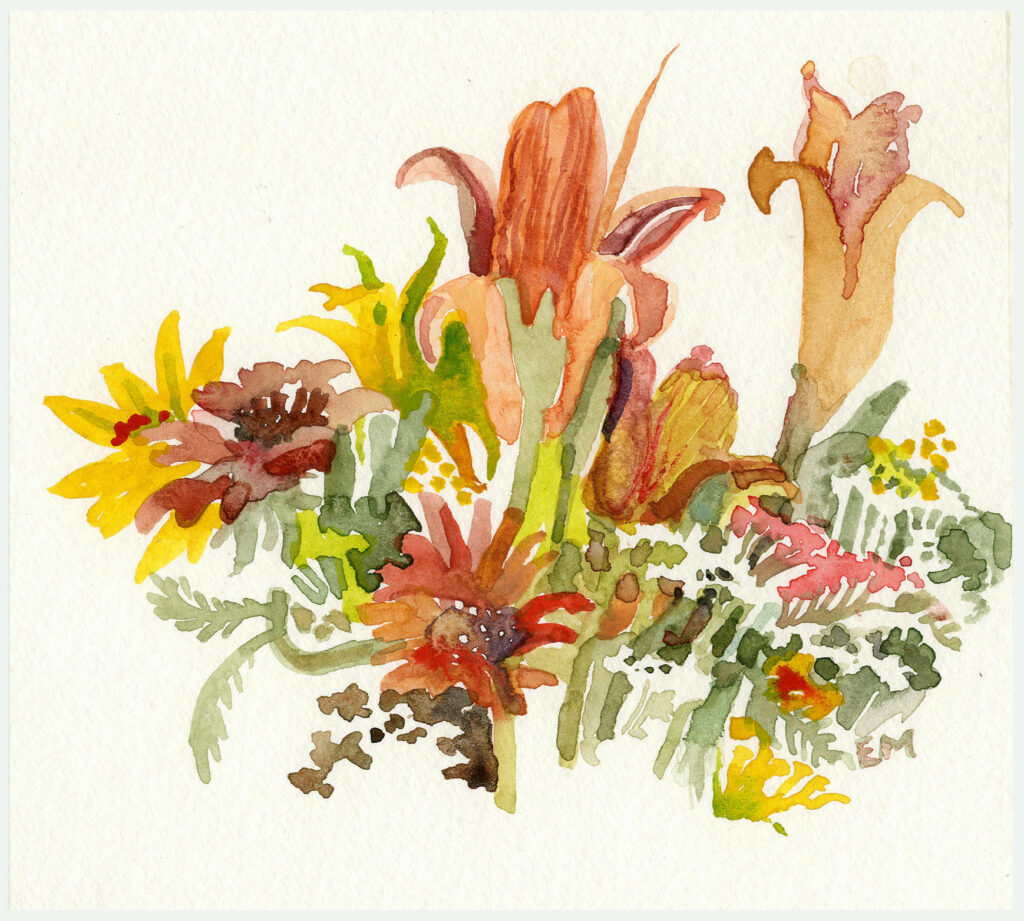
Observation and Exploration
August is the month in the garden when everything is ripening and we
are reminded of the impermanence of things. As the tomato ripens on
the vine, the vine itself begins to dry up, as its purpose is complete. As we begin to lose sunlight every day, we are reminded to appreciate it by stepping outside to work in the garden or walk in nature, observing the range of nature’s exciting colors before we begin our gradual withdrawal inward.
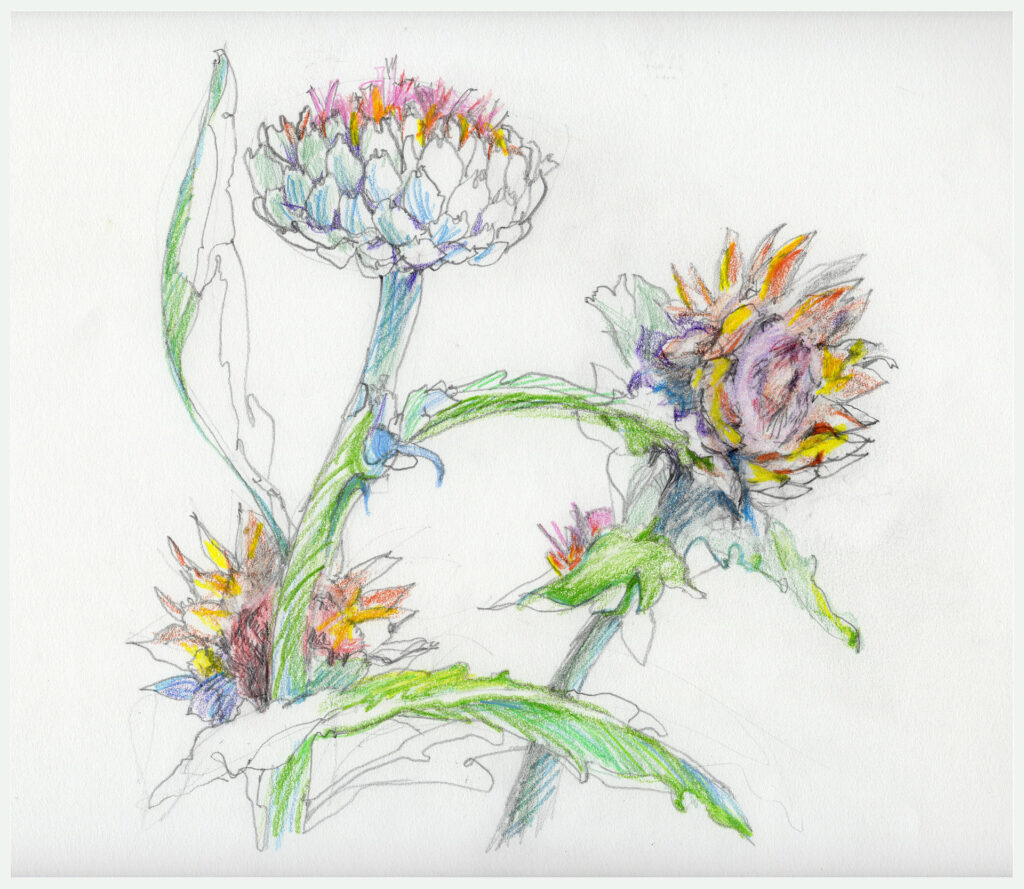
In art, painters use their color palettes to create a psychological impact, influence mood and emotions, and even convey the seasons. Be it on canvases, paper saturated with color, or hues lightly applied as a mere suggestion. The human reaction to color is significant, evolutionary, complicated, and influenced by cultural background and experiences.
However, the colors of nature are generally linked to harmony, happiness, and renewal, and have a calming effect. The abstracted colors draw people in and summon to their consciousness landscapes of trees, grasses, and flowers, just from the suggestion of tones and forms in greens, blues, yellows, reddish-oranges, and browns, with touches of floral pigments. Try for a moment to only think in colors and forms, expressed in different emotions and mental states. What specific emotions do you hope to elicit in your drawing? Think too about the drama of nature and the gestural strokes that would support that, and would add energy, helping your composition feel active.
Along with form and shape, capture a plant’s true vibrant, authentic
colors and patterns with your own artistic interpretation as the goal. Look at Van Gogh’s robust paintings of evergreen cypress trees that he painted while in the South of France. He found the right gestural brush strokes in the perfect shades of green to express the trees’ character and virtue.
“The cypresses still preoccupy me… because it astonishes me that no one has yet done them as I see them.”
Vincent to Theo Van Gogh, June 25, 1889
Lesson: Along with form and shape, capture a plant’s true vibrant, authentic colors and patterns with your own artistic interpretation.
Start by choosing your drawing medium. Consider colored pencils, markers, or watercolors, and select paper appropriate to your medium. Lightly sketch your composition.
Observe your subject closely and pick your color palette.
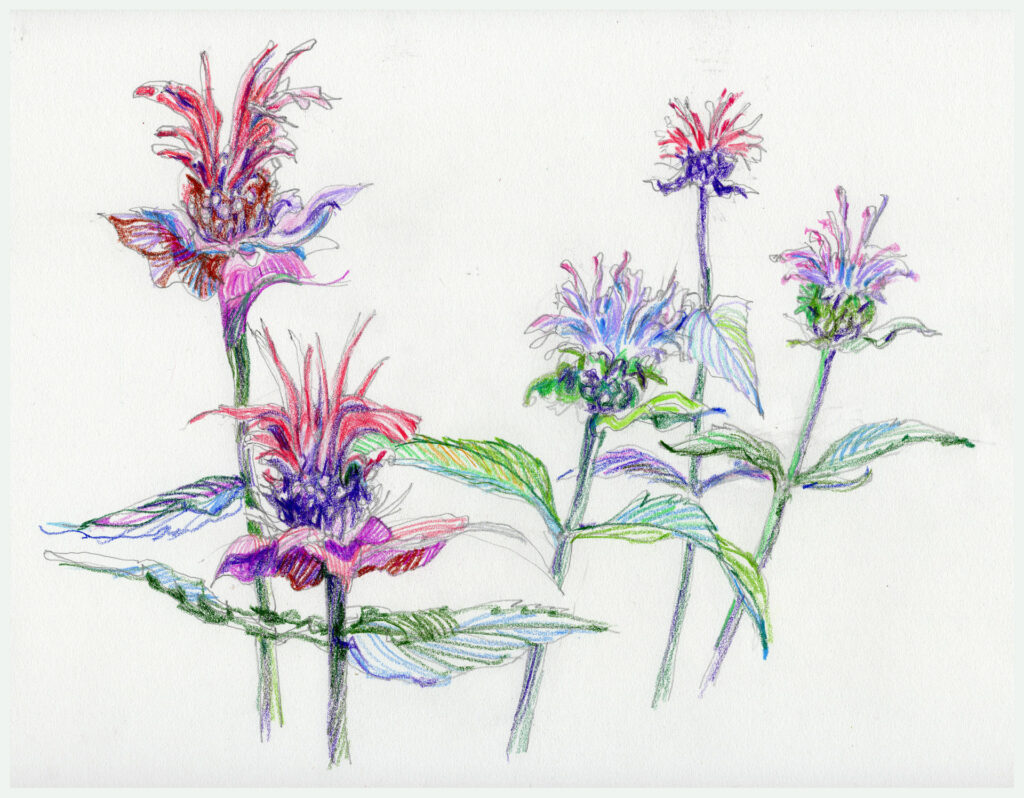
Apply base colors to all the elements of the drawing and gradually build up layers to achieve your desired intensity or shading. Blend colors to create gradients and shades.
On another side paper, experiment with techniques for textures with gestural strokes, allowing your imagination to guide you. When you’ve arrived at a successful gestural mark, apply it as a patterned detail to your drawing. Stop often to look at the overall drawing for direction in fine-tuning for visual appeal.
“Nature is painting for us, day after day, pictures of infinite beauty if only we have the eyes to see them.”
John Ruskin

Congratulate yourself for taking on this challenge to work expressively in color. Share your drawing with the Plantings community by posting it on Instagram with the hashtag:
Sharing helps everybody grow.

As Ireland transitions from the rich, smoky scent of peat-burning to a more sustainable future, its olfactory heritage is evolving. What will become the next iconic aromatic symbol of Ireland?
Click to watch the documentary trailer.
Plantings

Eat More Plants Recipes:
Late Bloomer Cocktail
By Tessa Liebman






